
In today’s fast-paced world, it is easy to fall into the trap of convenient but unhealthy food options. The easy availability of fast food everywhere is having a detrimental effect on everyone’s health, If you have children or you take care of them, you probably want to make sure that they are well nourished so that they can live with a healthy brain, you can check out the best foods for mental and physical health development.
Nowadays children are choosing foods like junk food, but it is very important for parents to be aware of the right food, nutrition and both mental and physical health for children. The right nutrition is important for all aspects of health benefits including brain development and functioning.
As parents, we are very concerned about the health of our children. Many children are born weak and many children are born before the age of nine months for some reason, they are very weak physically and mentally.
The brain develops rapidly during the first five years of a child, which is very important for children. Your child’s brain reaches 90% of its adult weight by the time he or she reaches the age of 15. Your child’s brain continues to develop during adolescence, so in this blog, we will tell you about the best foods for the mental and physical health development of children.
A Balanced Diet to Reduce Anxiety and Boost Brain Power
A balanced diet can help promote healthy growth and development, improve cognitive function, and prevent the onset of chronic diseases. That’s why all parents strive for good health for their children. In this article, we will Explore the role of nutrition in mental and physical health.
We will also tell you in detail about such foods which are very important for the physical and mental development of children, so let’s start.
What is a Balanced Diet?
A balanced diet includes a variety of nutrient-dense foods that provide the essential nutrients the body needs to function optimally. The five food groups that make such a balanced diet are as follows:
Fruits And Vegetables
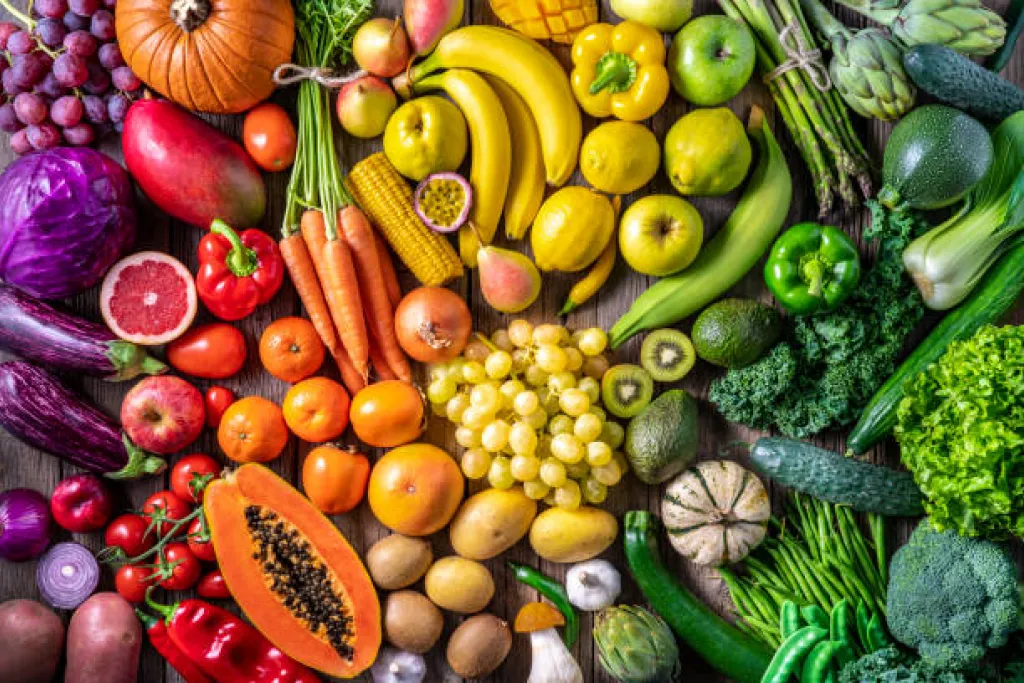
Image source: health.harvard.edu
Fruits and vegetables are good sources of vitamins, minerals, and fiber. A diet rich in fruits and vegetables has been linked to a lower risk of chronic diseases such as heart disease, stroke, and some cancers.
Protein

Image Source: istockphoto.com
Protein is important for the growth and repair of tissues in the body. Good sources of protein include lean meats, fish, poultry, eggs, beans, and nuts.
Carbohydrates
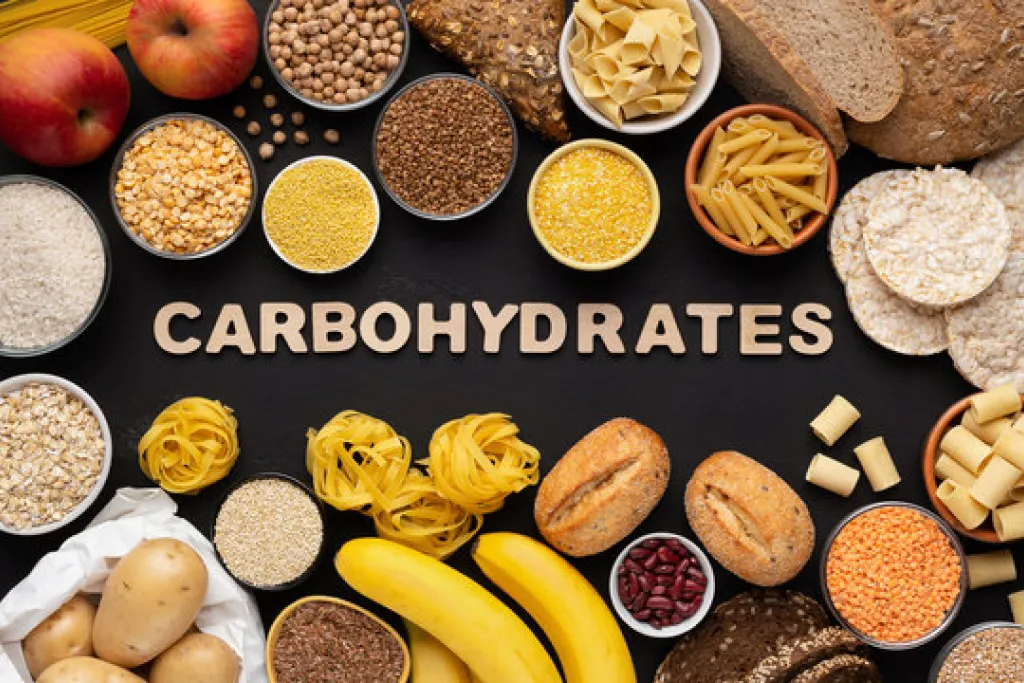
Image Source: Stock.adobe.com
Carbohydrates provide energy to the body. Good sources of carbohydrates include whole grains, fruits, and vegetables.
Dairy Product
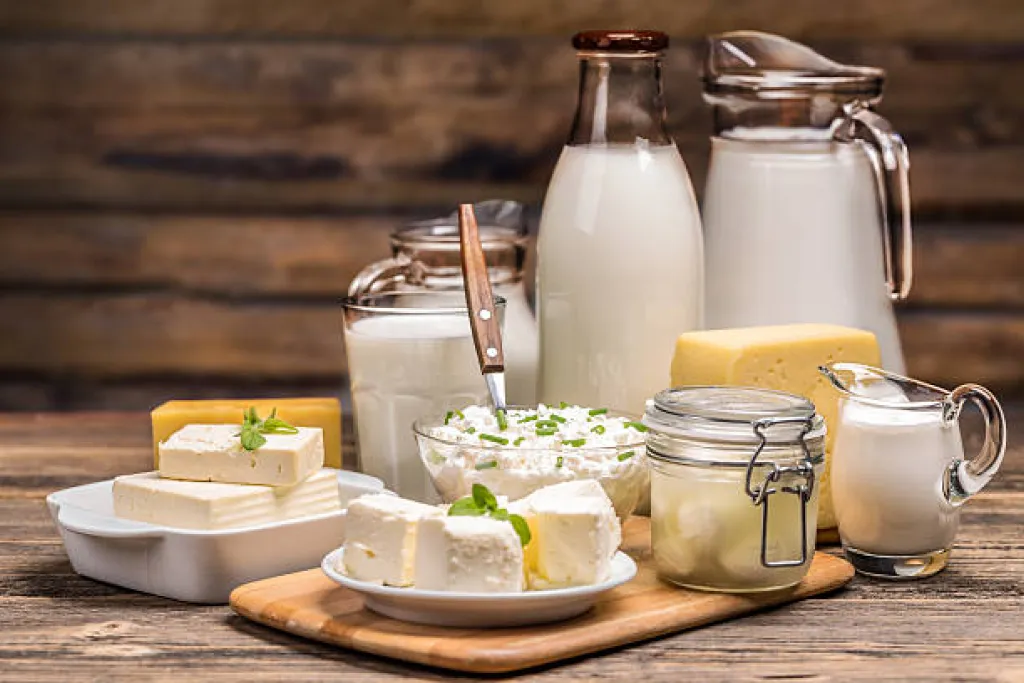
Image Source: istockphoto.com
Dairy products are a good source of calcium, which is essential for strong bones and teeth. Good sources of dairy include milk, cheese, and yoghurt.
Good Fat
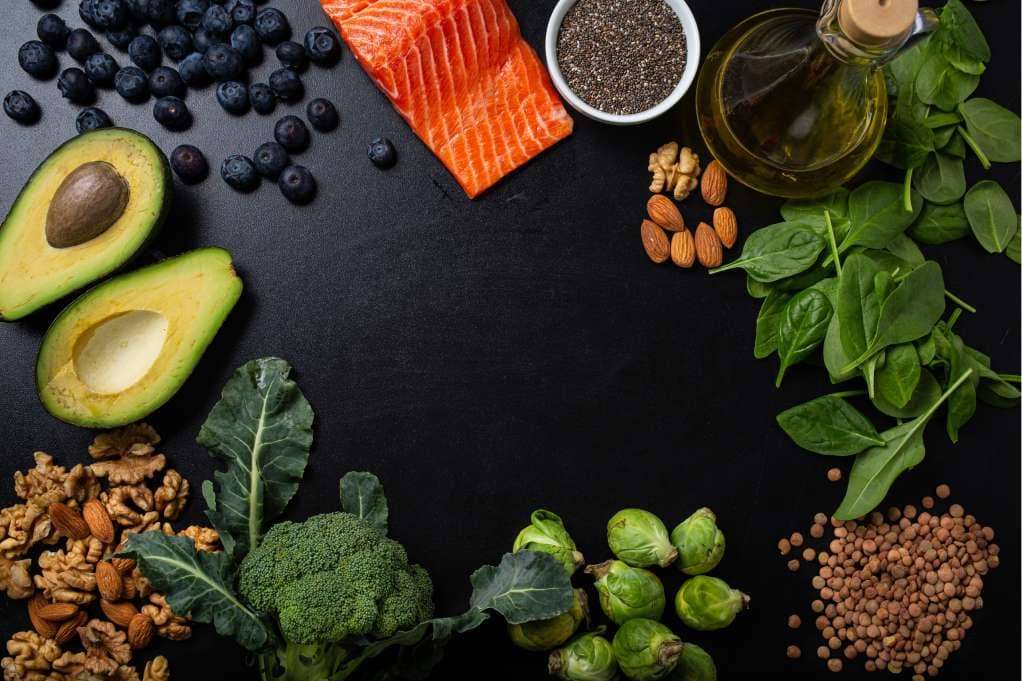
Fat is an essential part of a balanced diet, it affects the overall health of children. In this, you can use healthy fats such as Avocado, nuts, seeds, fish, ghee, and olive oil in your diet.
These 7 Foods Are The Best for Your Children’s Mental and Physical Health
Nutrition plays an important role in the development of a child’s brain. Nutritious food has a positive effect on the brain which helps the child in learning, memory, attention, and behavior. Furthermore, it also improves the way we process information, the ability to control impulses, and promotes multitasking.
A complete and healthy diet includes minerals, vitamins, and antioxidants, nourishing and protecting the brain from stress or anxiety. Therefore, parents should provide a clean diet for their children’s development.
Read on to learn about 7 brain foods for kids and tips for parents on how to incorporate them into kid-friendly meals and snacks.
Egg
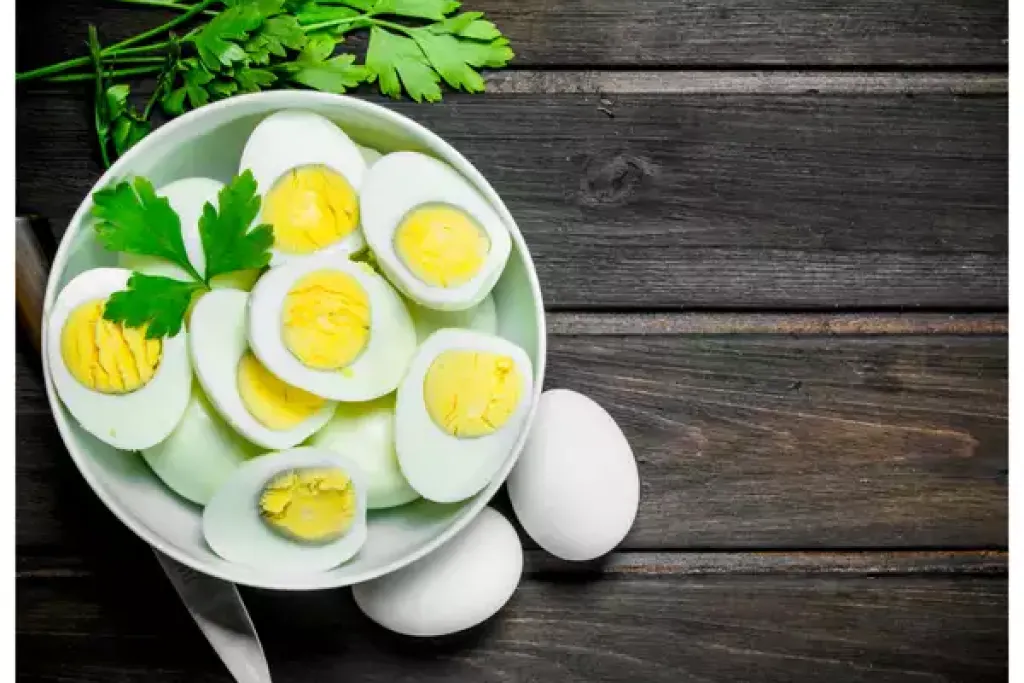
Image Source: Timesofindia
Eggs are everyone’s favourite food. Besides being rich in protein and nutrients, eggs can increase children’s concentration and attention. Egg yolk improves brain functioning such as retaining memory and improving communication skills. Eggs help produce the happiness hormone “serotonin” which keeps the baby happy and excited throughout the day. It contains choline, vitamin B12, and protein. Choline is a nutrient that is very important for brain development.
A 2020 review of 57 studies suggested that adding choline to a baby’s diet during the first 1,000 days of life may help in brain development, provide protection against nerve cell damage and meet protein deficiencies. And may improve cognitive functioning.
Two whole eggs give you 294 grams of choline, which meets 100% of the choline requirements of children aged 1-8 years and more than 76% of the requirements of children and adolescents aged 9-13 years. You can include it in your breakfast or lunch.
Fish

Image Source: Mediastorehouse.com.au
Seafood is an excellent source of many nutrients that are especially important for brain function, for this reason, you should introduce your cute and innocent children to seafood that includes clams, shrimp, salmon, tuna, trout, and herring.
Fish contains adequate amounts of omega-3 fats, iodine, and zinc which are essential for brain function. Fish accelerates gray matter growth in the brain and also prevents age-related brain loss.
Some studies on children have shown that children who eat fish have much higher IQ levels than normal children. This makes a huge difference in their schooling results. Additionally, a lack of omega-3 fats in the blood has a significant negative impact on brain development.
Berries
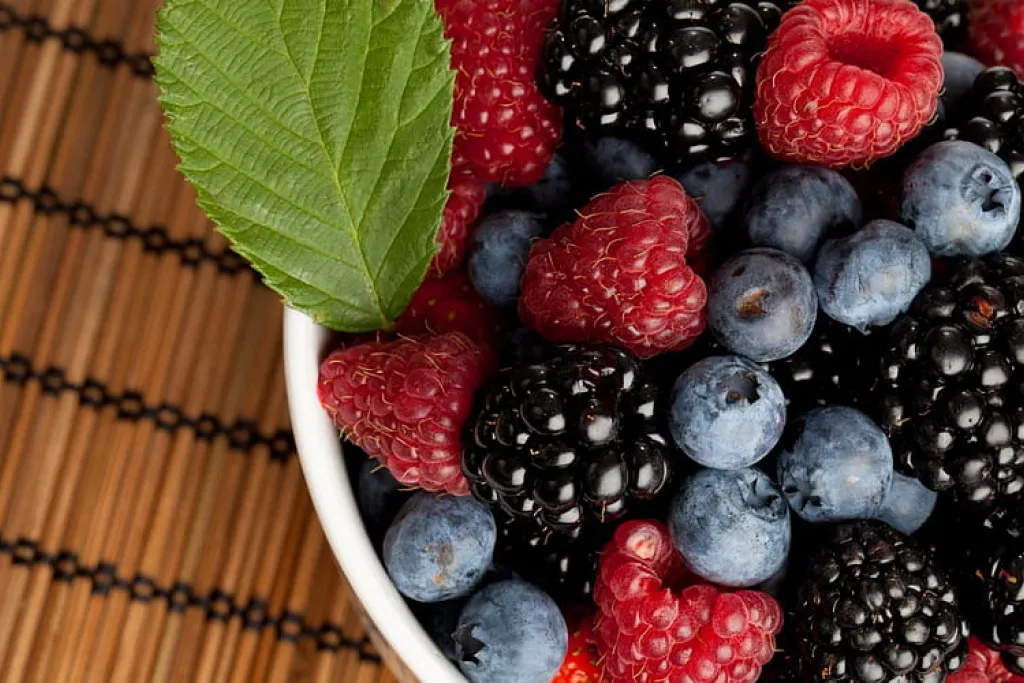
Image Source: Peakpx.com
Colourful berries such as blueberries, raspberries and strawberries are rich in antioxidants called anthocyanins. Scientists have found that anthocyanins may be beneficial for a healthy brain in several ways.
Consuming berries also helps improve cognitive behaviour in children. It also improves academic performance and makes a child’s brain alert and sharp. This helps children learn new things quickly, they can increase blood flow to the brain, provide anti-inflammatory effects and promote the production of new nerve cells and the expression of certain proteins. This includes brain-derived neurotrophic factor (BDNF), which is involved in learning and memory.
Results of several studies suggest that berry consumption positively affects cognitive function in children. For example, a study conducted on 16 children aged 8-10 years found that children who consumed 180 grams of a blueberry drink rich in flavonoids performed significantly better on a word recall test than a child who drank a control drink.
In addition, research has linked low berry intake, along with other fruits and vegetables, to poor neuropsychological function in children aged 5-8. High berry intake was also linked to impressive academic performance in a study involving 2,432 adolescents, so be sure to remove the seeds from blackberries and let your kids eat them.
Leafy Vegetables
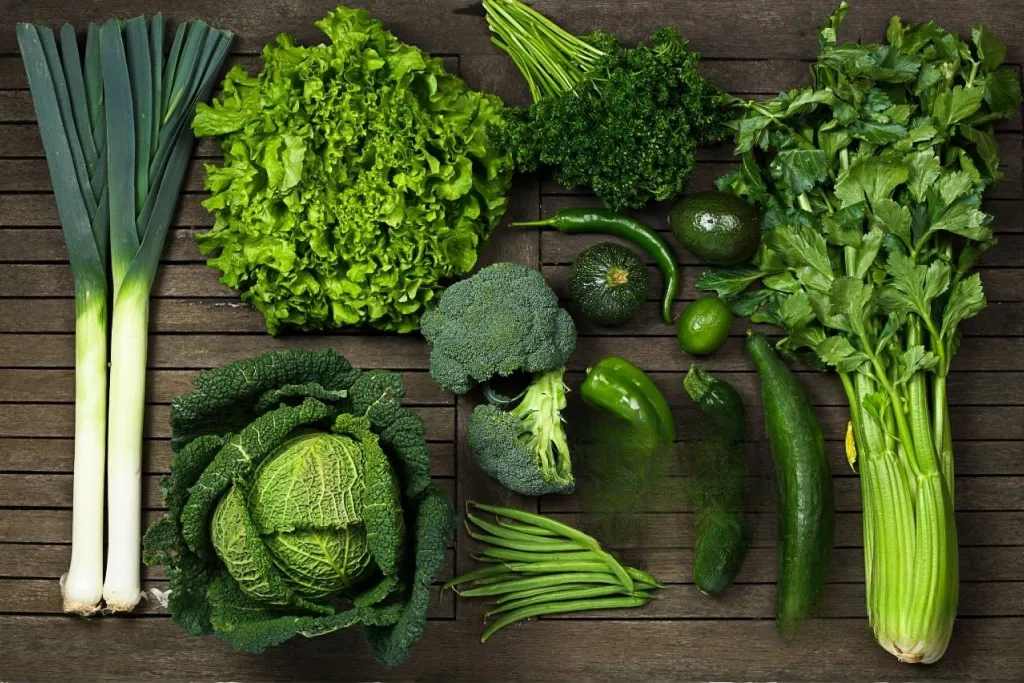
Image Source: Pharmeasy.in
Green vegetables and salads are very important for children’s brains. Leafy vegetables like spinach, lettuce and kale contain compounds like flavonoids, vitamin E and K1, which protect the child’s brain.
Children who eat a good amount of leafy vegetables have better cognitive scores. These greens are also rich in fiber which reduces inflammation in the brain and gut.
An experiment has shown that children who consumed folate had more positive results than normal children, their cognitive scores were better than those with inadequate folate intake.
Also, research shows that a diet rich in carotenoid-rich foods like leafy greens is good for children’s growth.
Did you know that leafy vegetables like spinach and kale are rich in amazing compounds called lutein and zeaxanthin? Their consumption has shown very good results in children’s eyes. Research has shown that long-standing eye problems have also gone away. Macular pigment optical density (MPOD) is a measure of the amount of these pigments in the eyes.
Eating green-striped vegetables provides great relief from iron deficiency problems like anaemia. Some studies have shown that MPOD is positively associated with cognitive functioning in children.
Curd
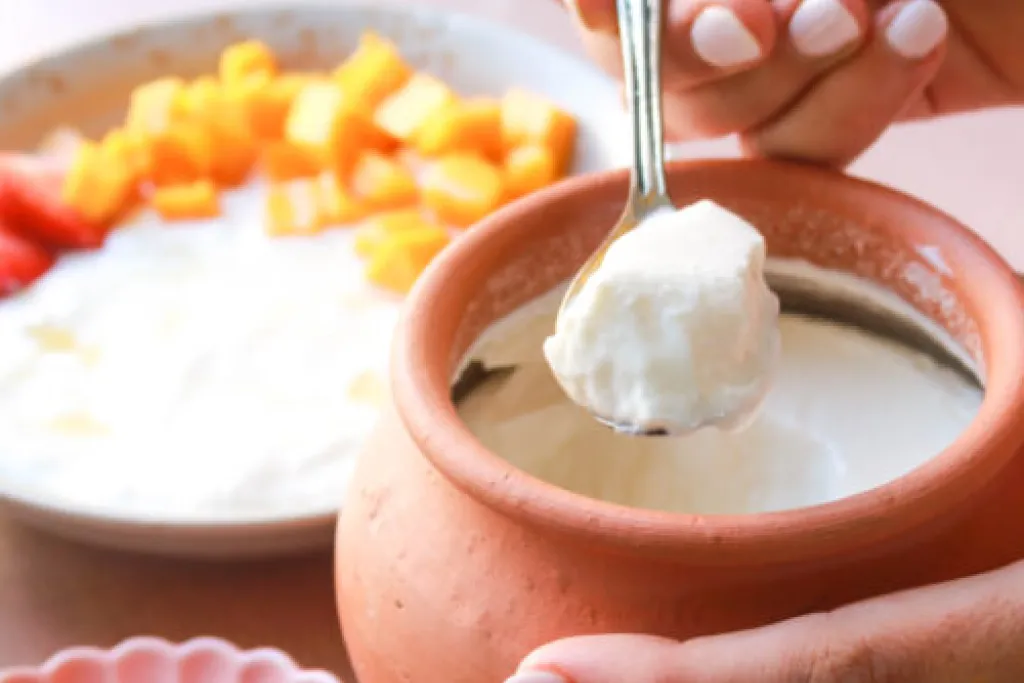
Image Source: Thewhiskaddict.com
Rich in protein, unsweetened yoghurt is great for brain health. Yogurt contains calcium and iodine which effectively help in brain functioning and improve cognitive skills in children.
Giving your lovely kids sugar-free yoghurt and protein-rich breakfast in the morning is a great way to start their day. Make sure to give your child unsweetened yoghurt with fruits and nuts for breakfast.
Experiments conducted on many children have shown that children who do not consume enough iodine are more likely to have poor brain development than children who have an iodine-sufficient diet.
Apart from being a good source of iodine, yoghurt is also rich in many other nutrients such as zinc, B12, calcium, and selenium which are important nutrients for brain development.
Therefore, it is very important to prepare a nutrient-rich breakfast for your children that includes brain-healthy foods, it is a great way to support your child’s brain health. Both children and adults enjoy yoghurt. Remember, do not give curd to children at night, it is best to give it in the afternoon with lunch.
Nuts And Seeds
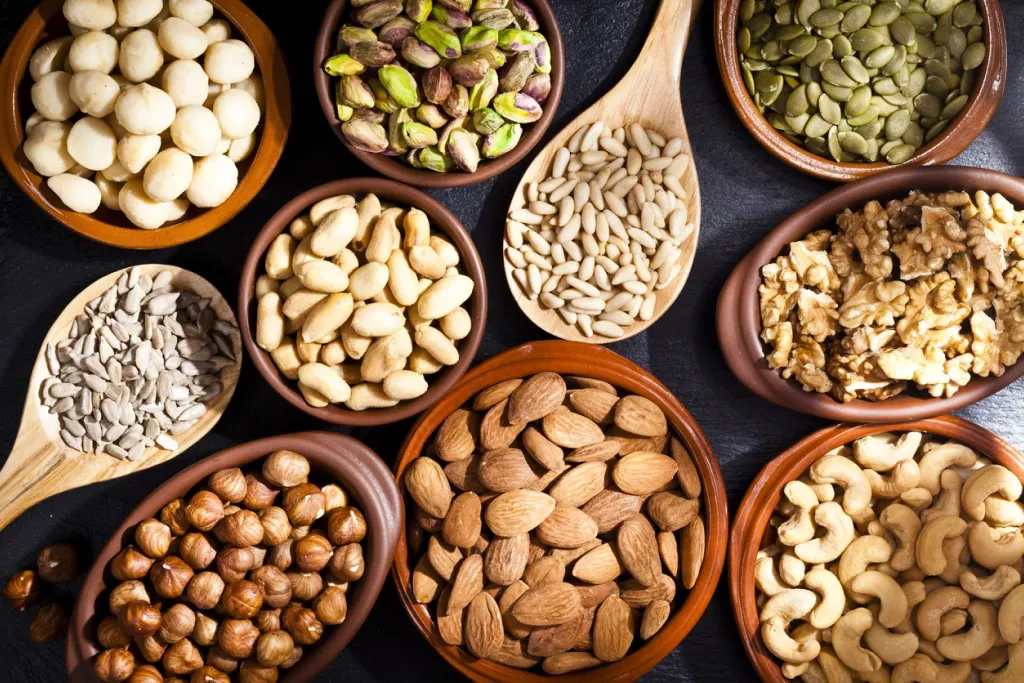
Image Source: Foodrevolution.org
Almonds and dry fruits play a very important role in the mental and physical development of children as they contain high amounts of Vitamin E, zinc, folate, iron, and protein. Nuts and seeds help improve academic performance and cognitive function in children. These provide energy to the child’s brain and help in improving memory and controlling mood swings in children. They also secrete serotonin, the “hormone of happiness” which keeps the child stress-free and happy. Among these, you can take almonds, walnuts, cashews, pistachios, raisins and figs, etc. These contain abundant amounts of fiber and protein.
You can give these to children for breakfast or in school tiffin, they are rich in fiber and protein.
Oranges
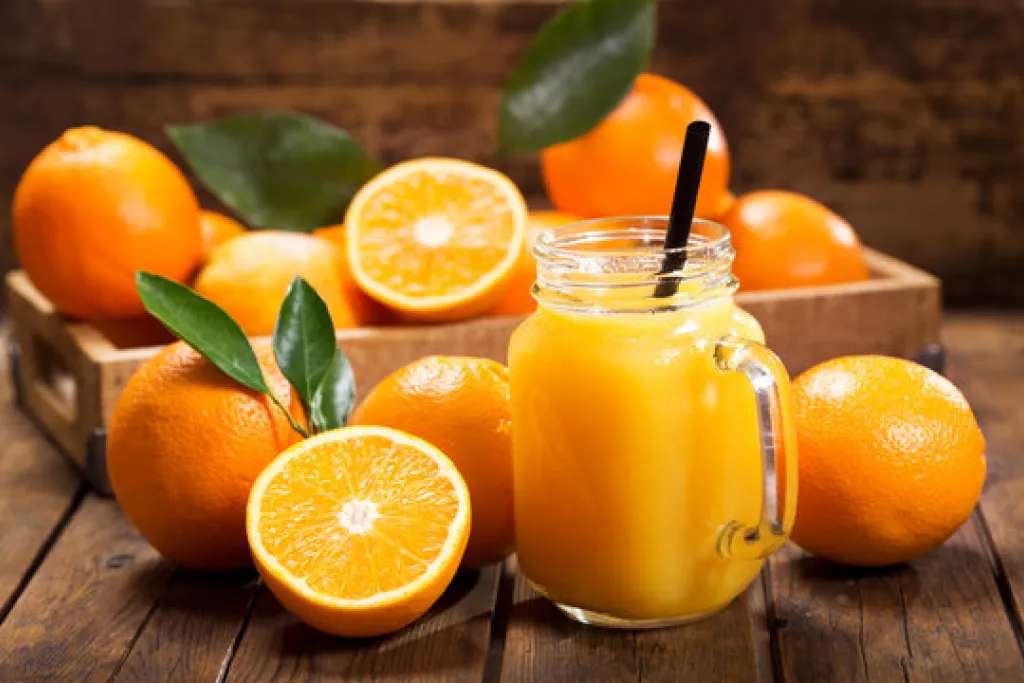
Image Source: Stock.adobe.com
Orange is a popular citrus fruit that is loved by both children and adults and is a favorite fruit of children due to its sweet taste. Include oranges in your children’s diet as it can be very beneficial for the overall development of your children in many ways.
Oranges are rich in vitamin C, and flavonoids, including hesperidin and narirutin. which is important for a healthy brain. Consuming oranges has benefits such as improved performance, focus, retention power, concentration, and recognition in children and they also become better decision-makers.
Experiments have shown that flavonoid-rich foods and beverages such as oranges and orange juice, which are rich in vitamin C, help increase the activity of the nervous system and blood flow to the brain, making us feel refreshed, which increases our working power and also reduces mental fatigue.
Oranges are also rich in vitamin C, which has many properties for brain development. Vitamin C is essential for proper brain development, neurotransmitter production, and much more. And orange is also very beneficial in serious diseases like cancer and ulcers.
Research has shown that people who do not have vitamin C deficiency have much better enthusiasm for work and thinking ability than those who are found to be deficient in vitamin C.
You can give orange juice and fruits to children with food.
Best 5 Yummy And Healthy Lunchbox Recipes to Keep Kids Full and Happy All Day!
Building Healthy Habits: Tips for Incorporating Nutrient-Rich Foods
Now that you know some of the best foods for your child’s mental and physical health, it’s time to put that knowledge into practice. Here are some tips to help you incorporate these nutrient-rich options into your family’s diet:
1. Lead by example: Children are more likely to adopt healthy eating habits if they see their parents doing the same. Try to adopt good eating behavior and involve your children in meal planning and preparation.
2. Be creative: Kids are very picky, but with a little creativity, you can make nutrient-dense foods more appealing. Try sneaking vegetables into smoothies, cooking with whole grains, or presenting foods in fun shapes and colors.
3. Involve your kids: Involve your kids in the process of choosing and preparing healthy meals. This can help them develop an appreciation for nutritious foods and feel a sense of ownership over their dietary choices.
4. Eat together: By eating together and talking, children learn how to eat by watching each other. This not only promotes healthy eating habits but also fosters a sense of connection and belonging.
5. Be patient and persistent: Changing dietary habits takes time and patience. Don’t be discouraged if your child is resistant at first. Be consistent and continue to offer nutrient-rich options regularly.
6. Do not watch mobile and TV while eating
It is often seen that nowadays people keep watching TV and mobile while eating. Due to this, the saliva produced in the mouth after seeing the food is not produced properly, which is very helpful in digesting the food. Due to this, there is a possibility of increasing obesity in children. So it would be better if you sit down and eat with your children.
Conclusion :
A balanced, nutrient-rich diet is very important for the mental and physical development of children. Proper nutrition during the rapid growth periods of childhood supports healthy development and disease prevention. Parents can enhance their children’s health by providing a variety of nutritious foods, limiting processed and sugary items, and encouraging regular physical activity. Prioritizing good nutritional habits sets children up for lifelong health and success works out.
We hope you liked our blog Best Foods for Mental and Physical Health Power for Kids. Please visit our other kids-related articles. Thank you.
How can I improve my mental and physical health?
• Aim for 30+ mins of moderate exercise weekly e.g. dancing, swimming, cycling
• Eat a balanced diet – fruits, veggies, whole grains, lean proteins, calcium
• Avoid processed foods, sugary drinks, unhealthy fats
• Get 7-8 hours of quality sleep nightly
• Don’t sleep immediately after eating, take a walk post-meals
• Manage stress via relaxation techniques – deep breathing, meditation, yoga
• Stay socially connected with loved ones
• Engage in mentally stimulating activities – learn new skills, read, and play brain games.
Which Foods Help Children Gain Muscles?
There is no special fruit for mental health, but there are many fruits whose vitamins, minerals and antioxidants provide a powerful combination that enhances mental health. Some of these are as follows:
Blackberries and Berries: Antioxidant-rich fruit that may help reduce inflammation and improve brain function.
Orange and Lemon: Rich in vitamin C, these fruits can help reduce stress and anxiety.
Bananas: They are rich in potassium, which can help control blood pressure and improve mood.
Avocado: It is a great source of healthy fats that support brain functioning.
Which Foods Help Children Gain Muscles?
Protein is very essential for muscle building and physical development of children. Therefore, include these protein-rich foods in your child’s diet:
Low-fat protein sources: Eggs, chicken, fish, beans, lentils, tofu and calcium-rich dairy products including milk, curd, ghee, butter, cream, and cheese.
Complex carbohydrates: Whole grains such as brown rice, quinoa, and whole-wheat bread and potatoes provide sustained energy for exercise.
Healthy Fats: Avocados, nuts, seeds and olive oil support overall health brain development and hormone regulation.
